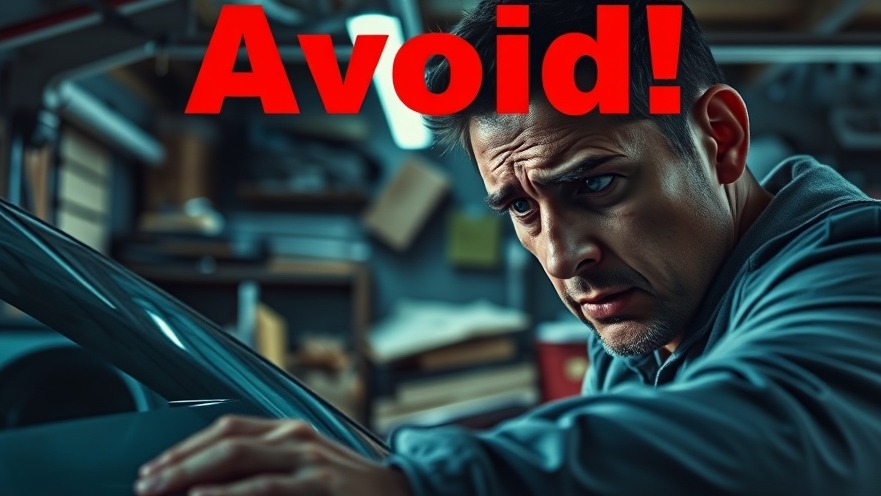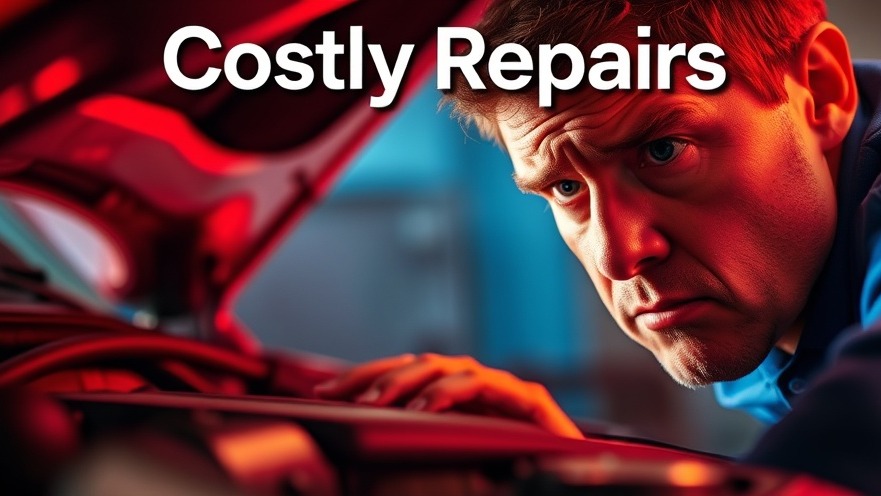
The Silent Killers: Protecting Your Car from Destruction
Owning a car is a major responsibility that goes beyond just the thrill of the drive. To ensure your vehicle remains reliable and retains its value over the years, it’s crucial to pay attention to a few factors that can easily lead to a vehicle's untimely demise. Drawing insights from a recent video, here are the top three things that can destroy your car and what you can do to avoid them.
In 'Top 3 Things That Destroy Your Car! DO NOT Do This!', the discussion dives into critical maintenance practices that every car owner should heed. This inspired us to analyze key insights to keep your vehicle running smoothly.
1. The Rust Hazard: Proper Rust Protection is Essential
One of the most significant threats to a vehicle, especially in northern climates where road salt is often used, is rust. Though all new cars come with some factory-made rust protection, it's usually insufficient for long-term defense against the elements. Without adequate rust protection, a car's body and frame can deteriorate over time, leading to safety concerns and depreciation in value.
While some dealerships offer rust protection products, many are overpriced and ineffective. Instead, consider cost-effective alternatives, such as oil spray rust prevention treatments like those from reputable companies such as Crown Rust Control. These treatments, applied consistently every year, have been proven to prevent rust and keep vehicles in pristine condition, even after many harsh winters.
2. The Long Oil Change Intervals: A Recipe for Engine Damage
Modern vehicles often come with recommendations for extended oil change intervals, sometimes stretching to as much as 10,000 miles or more. However, these prolonged periods between oil changes can cause significant issues in the long run, including severe engine problems or even complete engine failure. If you're planning on keeping your vehicle for a long time—beyond its warranty—it's wise to change the oil more regularly, approximately every 5,000 to 6,000 miles.
Maintaining these more sensible intervals not only prolongs your vehicle's life but also helps you avoid potentially devastating and costly repairs. Remember, keeping a record of your maintenance can also be helpful if any warranty issues arise down the road.
3. Neglecting Important Fluid Changes: Transmission Trouble Awaits
While many car owners consistently change engine oil, other critical fluids like transmission fluid are often overlooked. Neglecting these can lead to costly repairs; replacing a modern automatic transmission can run upwards of $8,000! Unfortunately, many manufacturers now advertise 'lifetime' transmission fluids, encouraging owners to skip fluid changes altogether. This approach often leads to problems later on.
It's recommended that fluid changes occur every 50,000 to 60,000 miles to avoid significant issues. This regular maintenance helps ensure that all components of the vehicle, including the transmission and differential, remain in good working order.
Take Action to Protect Your Investment
Understanding how to maintain your vehicle can save you from facing expensive repairs and help ensure you get the most value out of your investment. With simple preventive measures like proper rust protection, staying on top of oil change intervals, and ensuring fluid maintenance, you can keep your car running smoothly for years to come. Protect your vehicle like the valuable asset it is!
Have questions about your vehicle's maintenance or looking to purchase a new car? Be sure to consult trusted resources or professionals who can guide you in the right direction. Your vehicle deserves the best care available!
 Add Row
Add Row  Add
Add 




 Add Row
Add Row  Add
Add 

Write A Comment